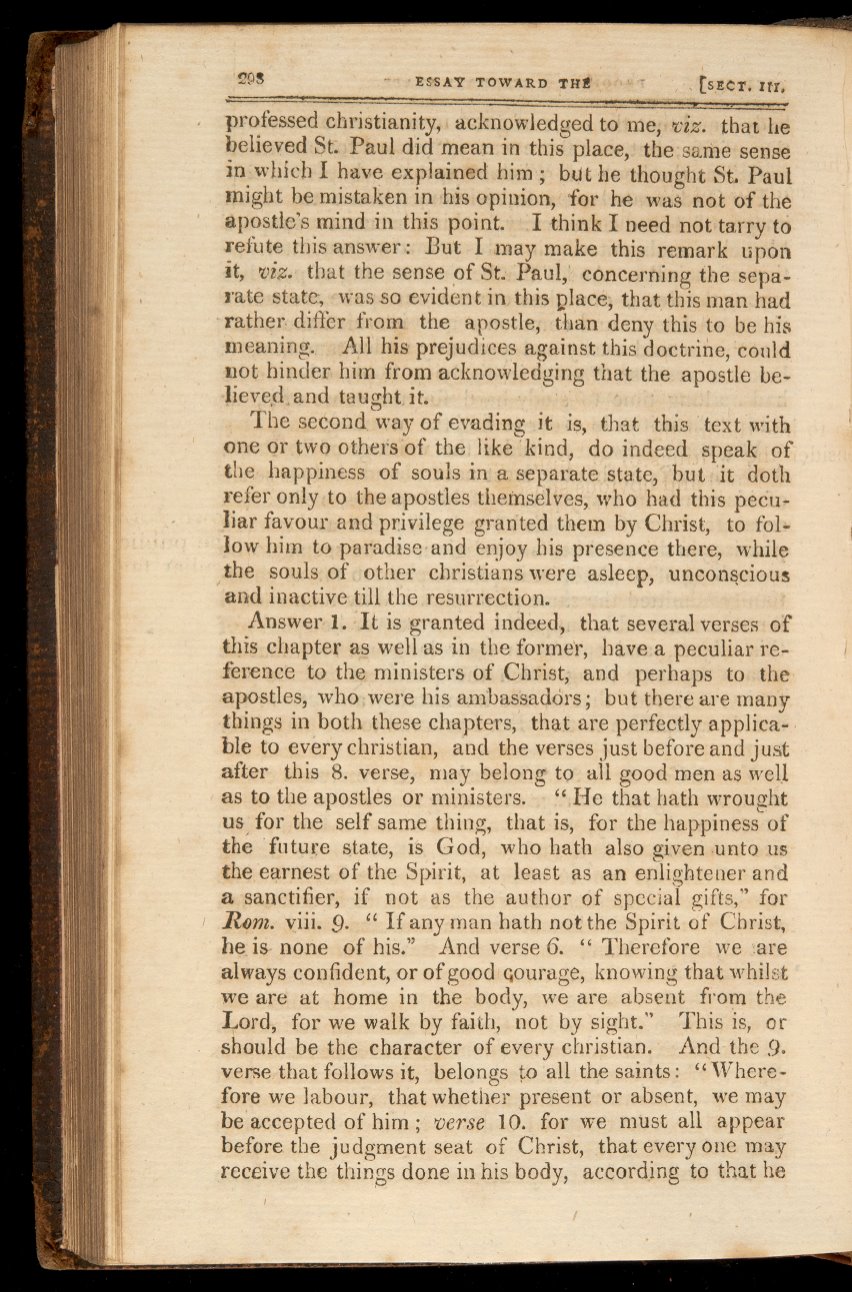

{
2QS
ESSAY
TOWARD
Tilt
SECT.
M.
professed
Christianity,
acknowledged
to
me, viz.
that
he
believed
St.
Paul
did mean
in
this place,
the
same sense
in
which
I
have
explained
him
;
but
he
thought
St.
Paul
might be.mistaken
in his
opinion,
for
he was
not
of
the
apostle's mind
in
this point.
I
think
I
need
not tarry
to
refute
this
answer: But
I
may
make
this
remark upon
it,
viz.
that
the sense
of
St
Paul,
concerning the sepa-
rate
state,
was
so evident
in this place,
that
this
man
had
rather.
differ
from
the apostle, than
deny this to
be
his
meaning.
All his
prejudices against
this
doctrine,
could
not
hinder
him
from acknowledging
that
the apostle be-
lieved, and
taught.
it.
The
second
way
of
evading
it
is,
that
this
text
with
one or
two
others
"of
the
like
"kind,
do
indeed speak
of
the happiness
of
souls in a
separate
state,
but
it
Both
refer
only to
the apostles
themselves, who had this
peen-
liar
favour and
privilege
granted
them
by
Christ,
to fol-
low him
to
paradise
and
enjoy his
presence there,
while
the
souls
of
.
other christians
were
asleep, unconscious
and inactive
till
the resurrection.
Answer
1.
It
is
'granted indeed,
that
several verses
of
this
chapter
as well
as in
the
former, bave
a peculiar
re-
ference to
the
ministers
of Christ,
and perhaps
to
the
apostles, who were
his
ambassadórs; but there are
many
things in
both
these
chapters, that
are perfectly applica-
ble
to every christian, and the
verses
just
before and
just
after
this
8.
verse, may
belong
to all good men
as
well
as to
the apostles
or
ministers.
"
He
that
hath wrought
us for the self
same thing,
that
is,
for
the happiness
of
the
future
state,
is
God,
who
bath
also given .unto
us
the earnest
of
the Spirit,
at
least
as
an enlightener
and
a
sanctifier,
if not
as
the
author of
special
gifts,"
for
Rom.
viii.
9.
"
If
any man
bath
not
the Spirit
of
Christ,
he is none
of
his."
And verse
6.
"
Therefore
we
are
always
confident,
or of
good çourage, knowing
that
whilst
we
are
at
home
in the body,
we
are
absent
from the
Lord, for
we
walk
by faith,
not
by
sight."
This
is,
or
should
be
the
character of
every christian.
And
the 9.
verse
that
follows it,
belongs
o
all the
saints:
" Where-
fore
we
labour,
that
whether
present or
absent,
we
may
be
accepted
of
him
;
verse
10.
for
we
must
all
appear
before
the
judgment
seat
of
Christ,
that
every one may
receive the things done in
his body,
according
to
that
he

















